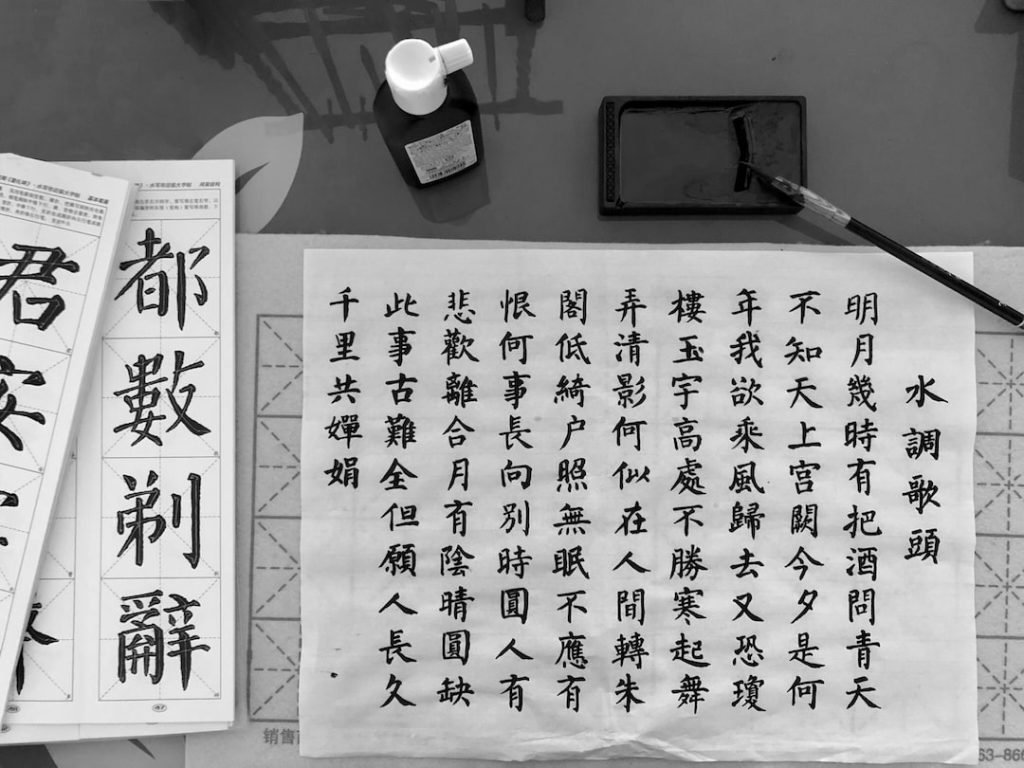

Cultural Insights Chinese Vocabulary Reflecting Traditions and Customs
Chinese vocabulary plays a crucial role in understanding Chinese culture. Language is not just a means of communication; it is also a reflection of the values, beliefs, and customs of a society. By examining the vocabulary used in Chinese language, we can gain insights into the rich cultural heritage of China. This article will explore how Chinese vocabulary reflects traditional values and beliefs, the importance of family, social hierarchy, customs and traditions, daily life, festivals and celebrations, cuisine, art and literature, as well as its evolution in modern culture.
Table of Contents
ToggleChinese Vocabulary Reflecting Traditional Values and Beliefs
Chinese vocabulary is deeply rooted in traditional values and beliefs. For example, the word “Ren” (仁) represents the Confucian virtue of benevolence and kindness. It emphasizes the importance of treating others with compassion and respect. Another example is the word “Li” (礼), which refers to propriety and etiquette. It embodies the idea of behaving in a socially acceptable manner and showing respect for others.
These words are not just abstract concepts; they are integrated into daily life in China. People often use phrases like “Ren Qing” (人情) to describe the complex network of social relationships and obligations that exist within Chinese society. The concept of “Li” is evident in various aspects of Chinese culture, such as bowing as a sign of respect, giving and receiving gifts with both hands, and observing proper table manners during meals.
How Chinese Vocabulary Reflects the Importance of Family
Family is highly valued in Chinese culture, and this is reflected in the language. There are numerous words related to family that highlight its significance. For instance, the word “Jia” (家) means family or home. It encompasses not only immediate family members but also extended relatives.
Another important word is “Xiao” (孝), which refers to filial piety. Filial piety is a fundamental virtue in Chinese culture, emphasizing respect and obedience towards one’s parents and ancestors. The phrase “Xiao Shun” (孝顺) is often used to describe someone who is dutiful and respectful towards their parents.
Additionally, the word “Zong” (宗) is used to describe one’s ancestral lineage. It represents the importance of maintaining family traditions and honoring one’s ancestors. These words and concepts are deeply ingrained in Chinese society and shape the way people interact with their families.
The Role of Chinese Vocabulary in Reflecting Social Hierarchy
Chinese vocabulary also reflects the social hierarchy that exists in Chinese society. Words related to social status and respect are used to address people of different ranks. For example, the word “Nian” (年) is used to address someone who is older or of higher status. It is a term of respect that signifies deference towards elders or superiors.
Similarly, the word “Lao” (老) is used to address someone who is older or more experienced. It conveys a sense of reverence and deference towards those who are senior in age or position. On the other hand, the word “Xiao” (小) is used to address someone who is younger or of lower status.
These words reflect the social structure in Chinese society, where age and seniority are highly valued. They also highlight the importance of showing respect and deference towards those who are older or of higher status.
Understanding Chinese Customs Through Vocabulary
Chinese vocabulary provides insights into the customs and traditions that are deeply rooted in Chinese culture. For example, the word “Guo Nian” (过年) refers to the celebration of Chinese New Year. It involves various customs such as family gatherings, exchanging red envelopes with money, and setting off firecrackers to ward off evil spirits.
Another example is the word “Chun Jie” (春节), which refers to the Spring Festival. It is a time when families come together to celebrate the arrival of spring and pray for good fortune in the coming year. Customs such as making dumplings, hanging red lanterns, and performing dragon and lion dances are an integral part of this festival.
By understanding the vocabulary associated with these customs and traditions, we can gain a deeper appreciation for the cultural significance of these events in Chinese society.
The Influence of Chinese Vocabulary on Daily Life

Chinese vocabulary is deeply intertwined with daily life in China. There are numerous words that are used in everyday conversations to describe various aspects of life. For example, the word “Chifan” (吃饭) means to eat. It is a simple word that is used multiple times a day to describe the act of having a meal.
Similarly, the word “Shuijiao” (睡觉) means to sleep. It is a word that is used every night when people go to bed. These words may seem mundane, but they are an essential part of daily conversations and reflect the routines and habits of people in China.
The Significance of Chinese Vocabulary in Festivals and Celebrations
Chinese vocabulary plays a significant role in festivals and celebrations. There are specific words that are used to describe various aspects of these events. For example, the word “Bai Nian” (拜年) means to pay a New Year visit. It is a tradition where people visit their relatives and friends during Chinese New Year to exchange greetings and well wishes.
Another example is the word “Hui Jia” (回家), which means to return home. It is often used during holidays when people travel back to their hometowns to celebrate with their families. These words capture the essence of these festive occasions and reflect the importance of family and community in Chinese culture.
The Relationship Between Chinese Vocabulary and Cuisine
Chinese vocabulary is closely tied to cuisine. There are numerous words related to food and cooking that reflect the importance of food in Chinese culture. For example, the word “Fan” (饭) means cooked rice or meal. It is a staple food in China and is often used to refer to a meal in general.
Another example is the word “Chao” (炒), which means to stir-fry. Stir-frying is a popular cooking technique in Chinese cuisine, where ingredients are quickly cooked over high heat to retain their flavors and textures.
These words not only describe the act of cooking and eating but also reflect the cultural significance of food in Chinese society. Food is not just nourishment; it is also a way of bringing people together, expressing hospitality, and preserving culinary traditions.
Chinese Vocabulary and Its Connection to Art and Literature
Chinese vocabulary is closely connected to art and literature. There are specific words that are used to describe various forms of artistic expression. For example, the word “Shanshui” (山水) refers to landscape painting. It is a traditional form of Chinese art that depicts natural scenery, often with mountains, rivers, and trees.
Another example is the word “Ci” (词), which refers to a type of poetry that originated in ancient China. Ci poetry is known for its lyrical and emotional qualities, often expressing themes of love, nature, and personal experiences.
These words reflect the cultural significance of art and literature in China and highlight the rich artistic traditions that have been passed down through generations.
The Evolution of Chinese Vocabulary and Its Reflection of Modern Culture
Chinese vocabulary has evolved over time, reflecting changes in Chinese culture. With the rapid modernization and globalization of China, new words have emerged to describe modern concepts and technologies. For example, the word “Dianzi Youjian” (电子邮件) means email. It is a term that was introduced with the advent of the internet and reflects the digital age we live in.
Similarly, the word “Weixin” (微信) means WeChat, a popular social media platform in China. It is a word that has become ingrained in everyday conversations and reflects the influence of technology on communication and social interactions.
These examples demonstrate how Chinese vocabulary continues to evolve and adapt to the changing needs and trends of modern society.
In conclusion, Chinese vocabulary is a window into the rich cultural heritage of China. It reflects traditional values and beliefs, the importance of family, social hierarchy, customs and traditions, daily life, festivals and celebrations, cuisine, art and literature, as well as the evolution of Chinese culture. By understanding Chinese vocabulary, we can gain a deeper appreciation for the complexities and nuances of Chinese culture. It allows us to bridge the gap between languages and connect with people on a deeper level. In today’s globalized world, where cultural understanding is more important than ever, Chinese vocabulary holds immense significance.
If you’re interested in learning more about Chinese culture and traditions, you might also enjoy reading this article on Cultural Insights Chinese Vocabulary Reflecting Traditions and Customs. It provides a comprehensive guide to the vocabulary used in Chinese culture, including words and phrases related to traditional customs, festivals, and etiquette. Understanding these cultural nuances can greatly enhance your understanding and appreciation of Chinese society. Check it out here.
FAQs
What is the article about?
The article is about Chinese vocabulary that reflects traditions and customs.
What are some examples of Chinese vocabulary that reflect traditions and customs?
Examples of Chinese vocabulary that reflect traditions and customs include “红包” (hóngbāo) which is a red envelope filled with money given during special occasions, “年夜饭” (nián yè fàn) which is a big dinner on Chinese New Year’s Eve, and “拜年” (bài nián) which is the act of visiting family and friends during Chinese New Year.
Why is it important to understand Chinese vocabulary that reflects traditions and customs?
Understanding Chinese vocabulary that reflects traditions and customs is important for cultural awareness and communication with Chinese people. It also shows respect for their traditions and customs.
What are some other cultural insights that can be gained from learning Chinese vocabulary?
Other cultural insights that can be gained from learning Chinese vocabulary include gaining a deeper understanding of Chinese history, literature, and philosophy. It can also help in understanding Chinese art, music, and cuisine.
How can one learn more about Chinese vocabulary that reflects traditions and customs?
One can learn more about Chinese vocabulary that reflects traditions and customs by studying Chinese language and culture, reading books and articles about Chinese traditions and customs, and by talking to Chinese people and asking them about their traditions and customs.
If you want to learn Norwegian, you can register for classes here. We look forward to hearing from you and helping you become fluent in Norwegian.





